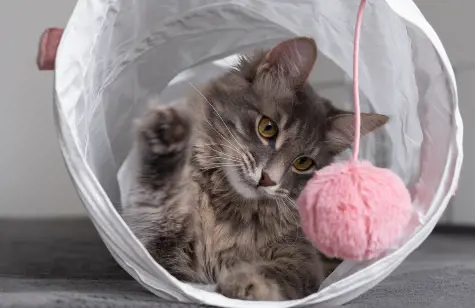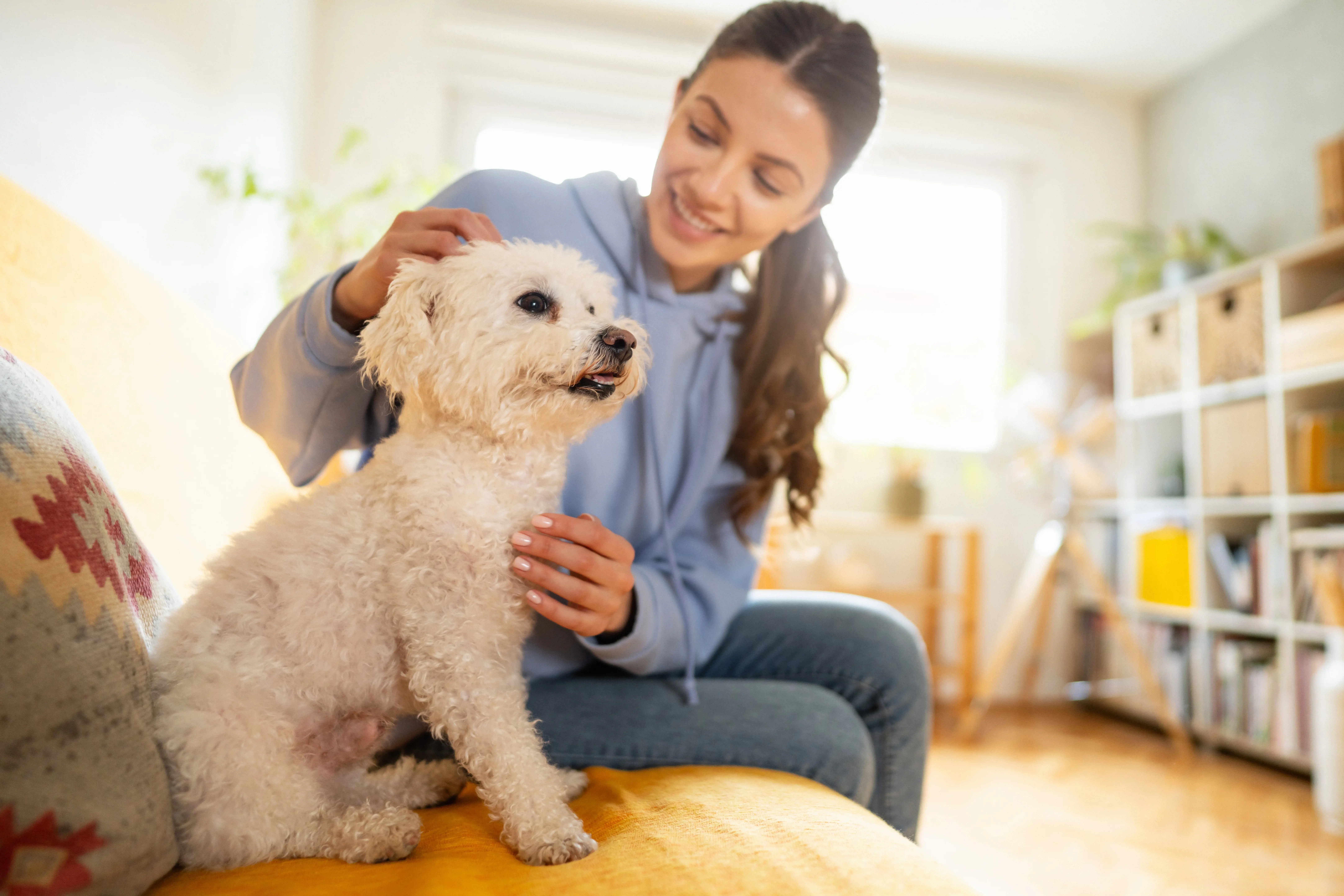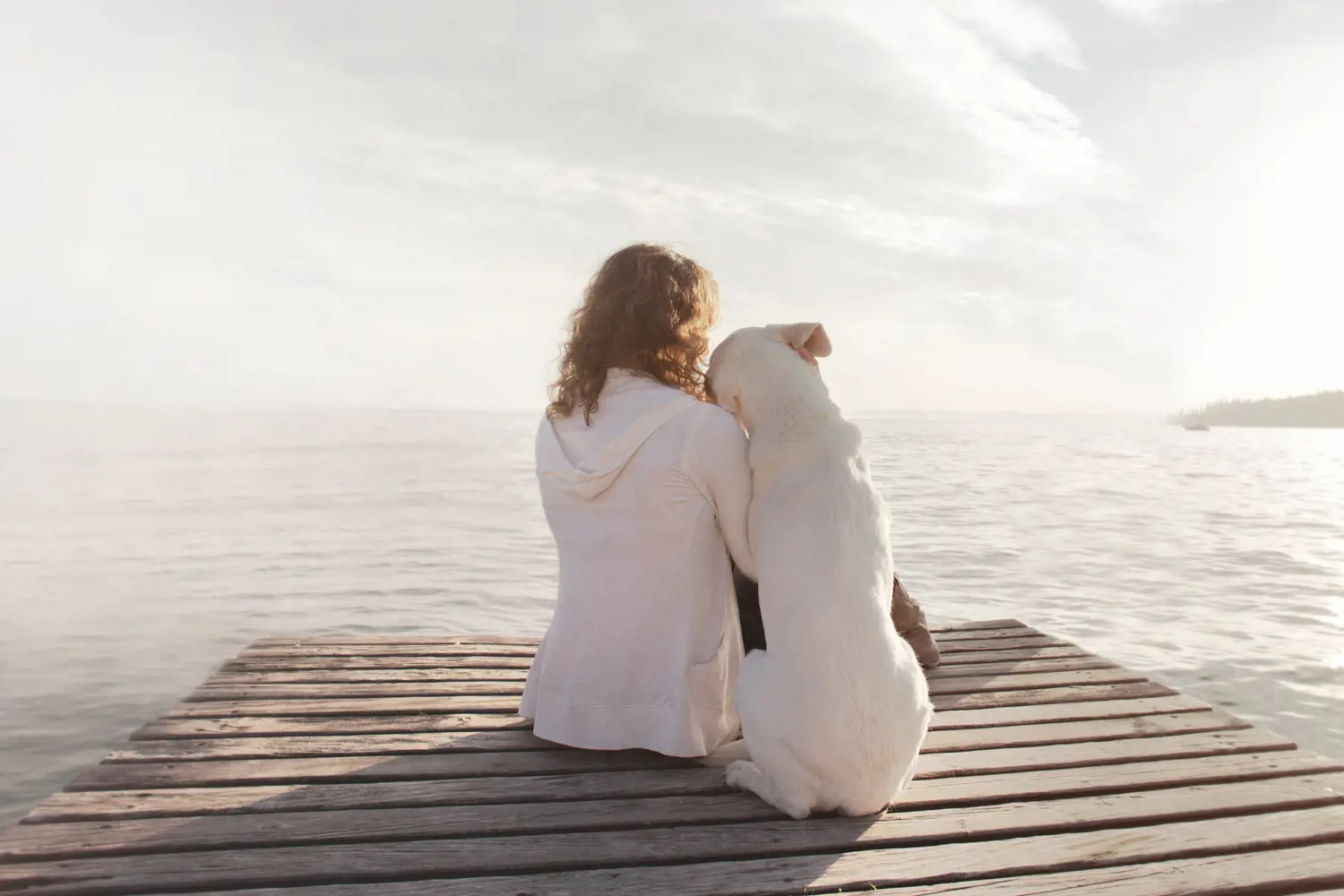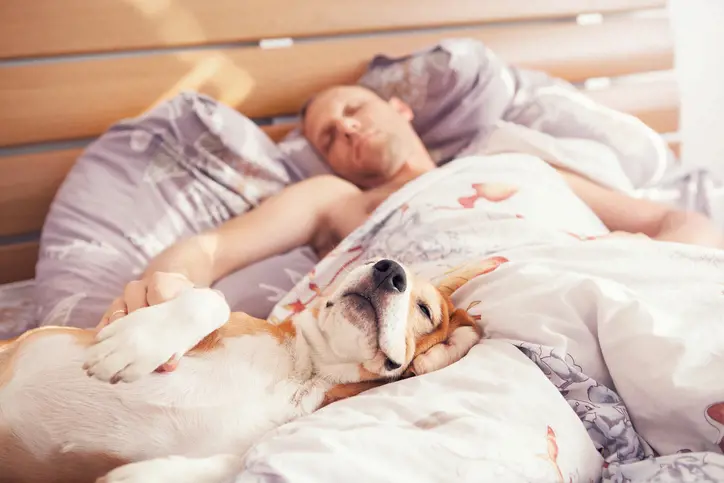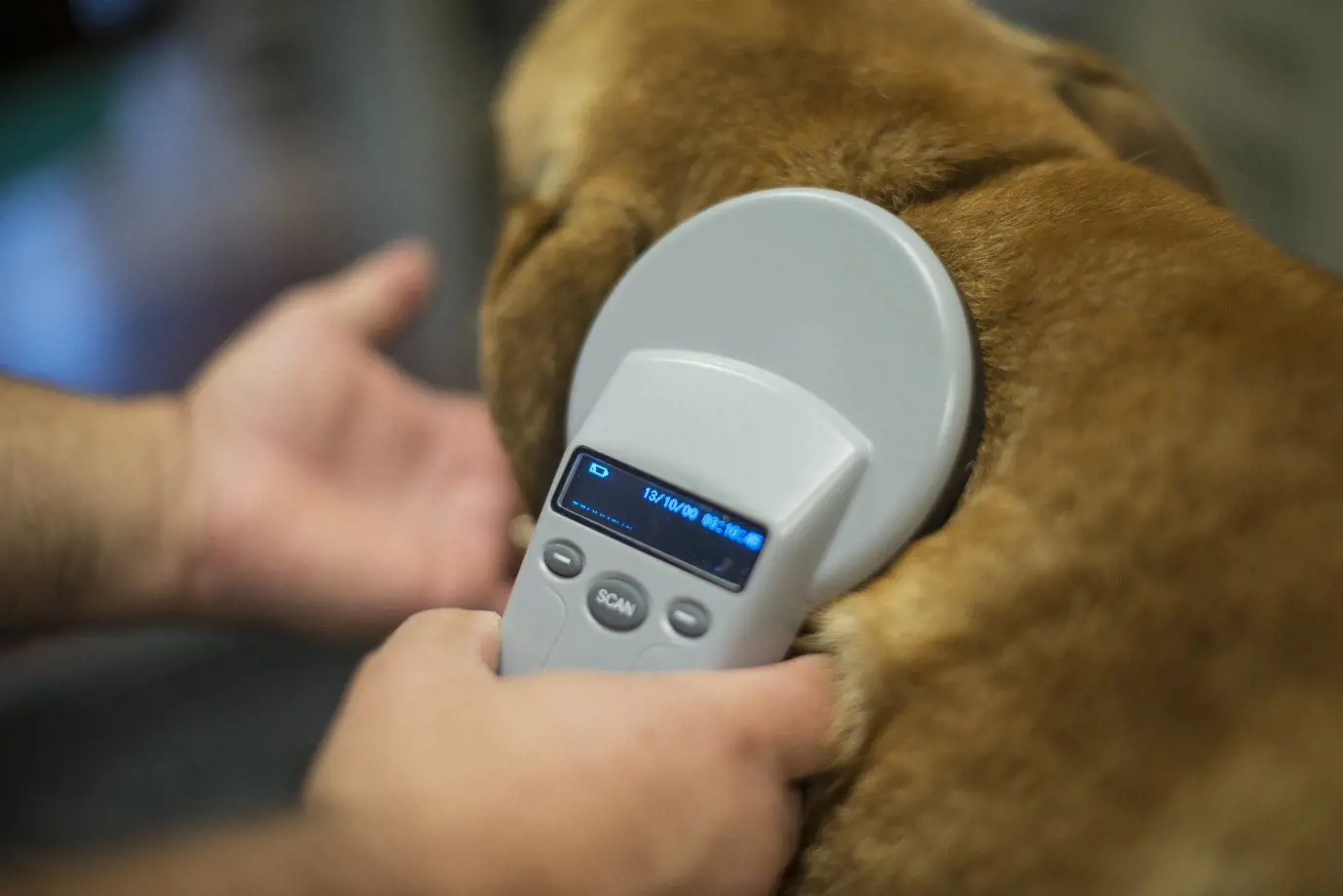Why is my dog following me everywhere? Understanding the mystery
1st May, 2024
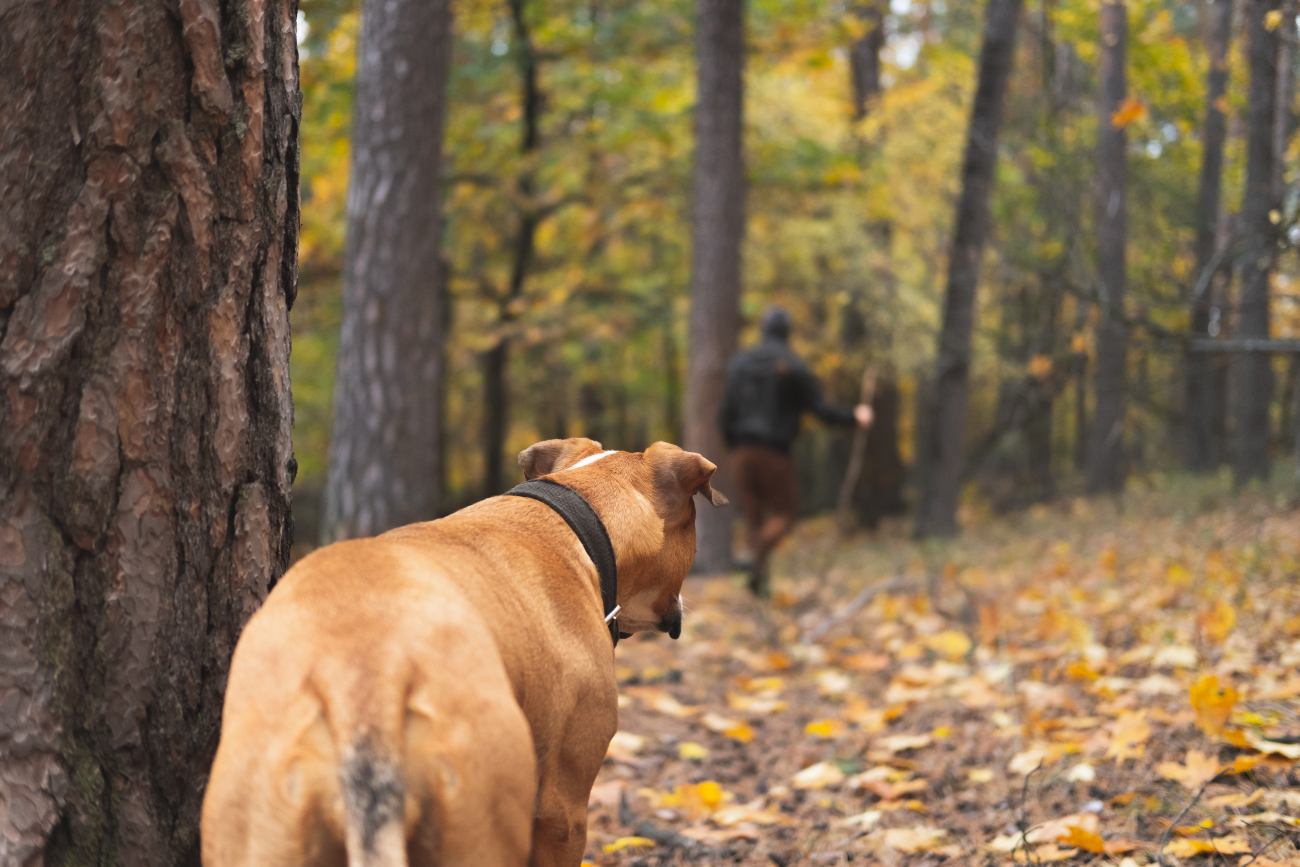
Ever find yourself asking the question, "why is my dog following me everywhere?" If so, you're not alone. Many dog owners notice this behaviour in their canine companions and often wonder about the reasons behind it. To quench your curiosity, we've compiled an in-depth guide that explores this intriguing phenomenon.
Understanding your dog's 'follow-me' behaviour
Dogs have evolved as pack animals, and when you bring a dog into your home, you essentially become their pack. This is one of the primary reasons why your dog might be tailing you around the house.
However, their following behaviour could be influenced by various factors, from their natural instincts and breed traits to socialisation patterns and anxiety levels.
The influence of genetics
Certain breeds of dogs, particularly those bred for centuries to work in close proximity to humans, are more likely to be what we call "Velcro dogs," sticking close to their human companions. For instance, herding dogs like Border Collies and Labrador Retrievers, renowned for their ability to follow human orders, may naturally tend to follow you around.
The role of reinforcement
Positive reinforcement is another factor that could explain why your dog prefers to stay by your side. If your dog has learned that following you leads to rewards like food, petting, or playtime, they're likely to repeat this behaviour.
The impact of imprinting
If you've been caring for your puppy since they were very young, it's possible that they may have imprinted onto you, viewing you as their parent. This could explain why puppies often follow their owners around, seeking safety and security.
Recognising the signs of separation anxiety
It's important to distinguish between normal following behaviour and signs of separation anxiety. While a velcro dog simply prefers to be near their owners, dogs with separation anxiety tend to feel genuine panic when left alone.
Some common symptoms of separation anxiety in dogs include:
- Aggressive behaviour
- Accidents in the house
- Destructive behaviour
- Changes in eating and sleeping habits
If your dog exhibits such signs, it might be more than just innocent following; it could be an indication of anxiety. It would be best to consult a professional in such cases. However, you can always check out our blog on how to cope with separation anxiety for a few extra tips.
Why does my dog follow me and no one else?
If your dog's shadowing behaviour is targeted specifically at you, it's likely because you're the one fulfilling their needs the most. You could be the primary caregiver providing food and walks, or the fun-loving family members offering playtime and affection.
The mystery of bathroom follows
One of the most common questions most dog owners ask is, "Why does my dog follow me to the bathroom?" The answer might be simpler than you think.
Dogs are curious creatures, and your bathroom break could be a treasure trove of intriguing smells for them. So, if you're heading to the bathroom, your dog might see it as an excellent opportunity for exploration.
The case of elderly dogs and rescue dogs
As dogs age, they may develop cognitive dysfunction syndrome, similar to dementia in humans. This can cause them to become more clingy and dependent on their owners.
On the other hand, rescue dogs often follow their new owners closely due to their previous experiences. They may need reassurance and it might take time for your dog's confidence to rise in their new surroundings.
How does following behaviour benefit dogs and humans?
The following behaviour can be beneficial for both dogs and humans. For dogs, following their owners can lead to positive reinforcement in the form of treats, petting, and fun activities. For humans, having a dog around can prevent loneliness, improve mood, and even boost health.
When is following behaviour a cause for concern?
While it's normal for dogs to follow their owners, the behaviour could become a problem if it turns excessive or obsessive. If your dog suddenly cannot stop following you or looking at you, it could indicate an underlying issue such as improper socialisation or over-dependency. It's always wise to consult a veterinarian if you notice any sudden changes in your dog's behaviour.
What does a dog do when they sense death?
Dogs have an uncanny ability to pick up on various human emotions and physical states. But what does a dog do when they sense death? This is a question that many pet owners ponder over.
Dogs are believed to have a heightened sense of intuition and can often sense when something is not right, especially with their owners. When dogs sense death, they may exhibit certain unusual behaviours.
Some dogs may become overly clingy and protective, refusing to leave the side of their ill family member. Check out our blog on which dogs are the most clingy to see if your canine companion is the type to become extremely clingy and protective.
Others may start acting out, displaying signs of anxiety or distress such as excessive barking, pacing, or whining. Some dogs may even appear to be in mourning. They may lose their appetite, become lethargic, or show less interest in activities they once enjoyed.
While these behaviours might not necessarily mean that your dog senses death, they do indicate that your pet is picking up on changes in the environment or the emotional state of their human companions.
How to manage excessive following behaviour
If your dog's following behaviour becomes too much to handle, there are several strategies you can adopt.
- Increase exercise: Ensuring your dog gets plenty of physical and mental stimulation can help them relax and reduce their tendency to follow you.
- Adjust reinforcement: If you're unknowingly encouraging your dog's following behaviour by offering the dog attention or treats, try shifting your reinforcement strategy. Reward them for settling down or playing independently.
- Consult a vet: If your dog's clingy behaviour is accompanied by signs of anxiety or any other medical issues, it's crucial to consult a vet.
Dog breeds more likely to follow you
Certain breeds are more prone to following their owners such as:
- Toy breeds like Chihuahuas, which were primarily bred to be companions, tend to bond closely with their human owners.
- Herding dogs like Border Collies and Labrador Retrievers may also follow their owners closely, waiting for cues and instructions.
Final notes: Finding a healthy balance
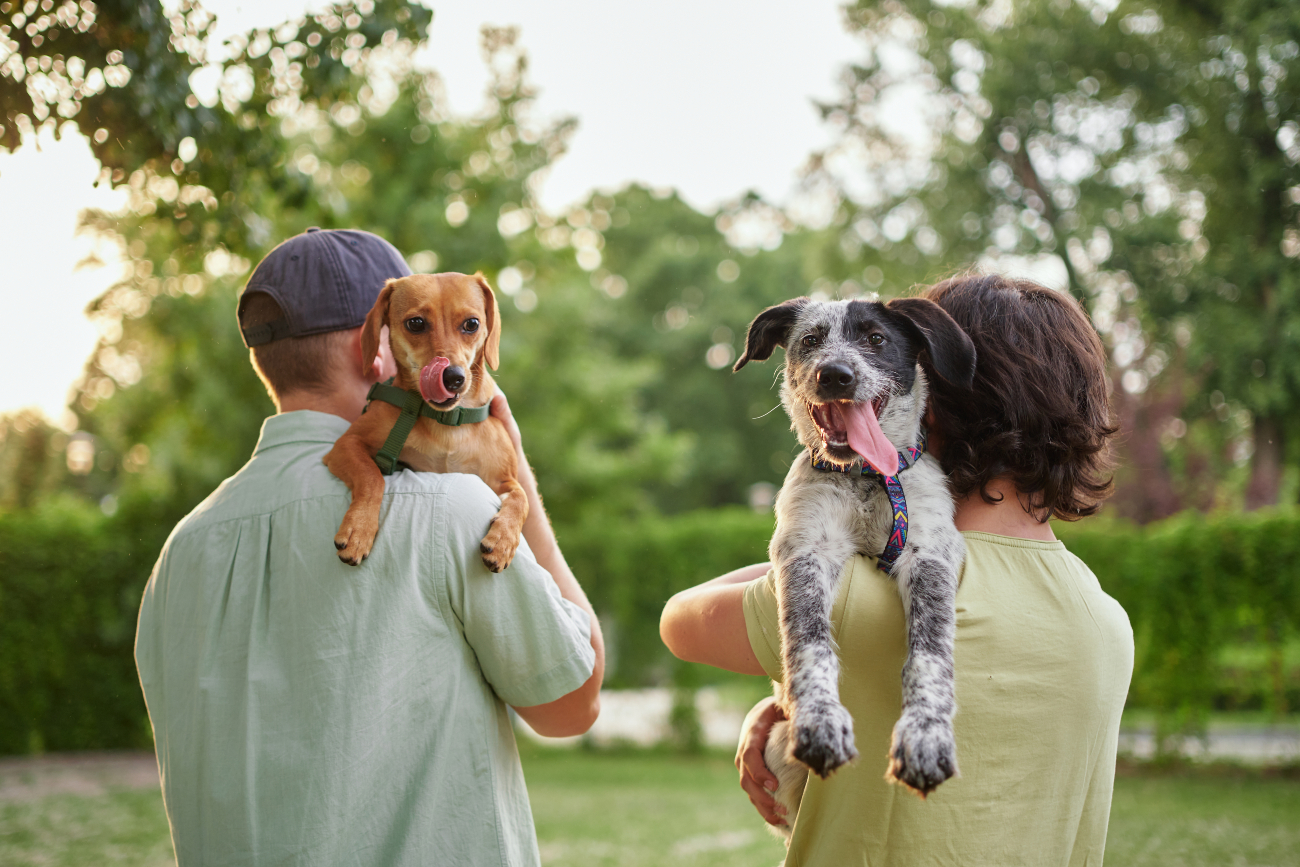
While it's heartwarming to have a dog that loves and adores you, it's essential to find a healthy balance. Teach your dog to be confident and independent while still maintaining a strong bond with them. If you're concerned about their health or behaviour, don't hesitate to consult a vet or an animal behaviourist.
And remember, taking care of a dog is a big responsibility. Ensuring your pet's health and welfare should be a priority. For added peace of mind, consider getting dog insurance for your canine companion by getting a quote on our website.
Insurance can help cover the costs of veterinary care for accidents and illnesses, making it easier for you to provide the best possible care for your beloved pet. It must be mentioned that behavioural issues will not be covered unless the policy has been in force for 24 months and is as a result of an insurable incident.
So, the next time you wonder, "why is my dog following me everywhere?" remember that it's often a sign of their love, trust, and bond with you. Embrace it, but also know when it's time to seek professional help.
Helpful Pages
Recent Posts
Pet Insurance Quote
- 98% claims paid *
- Claims paid directly to vets
- 24/7 vet video consultations
- Interest free monthly payments
